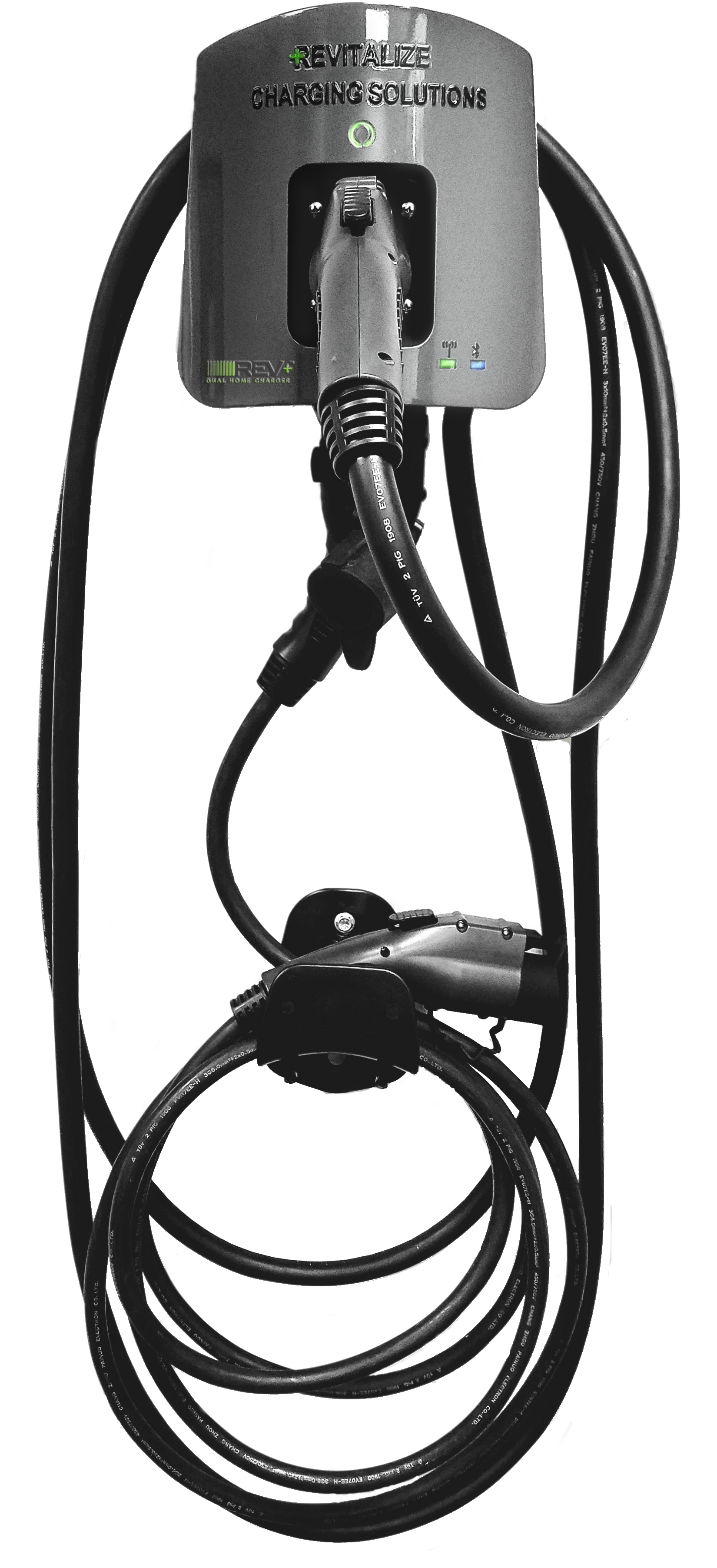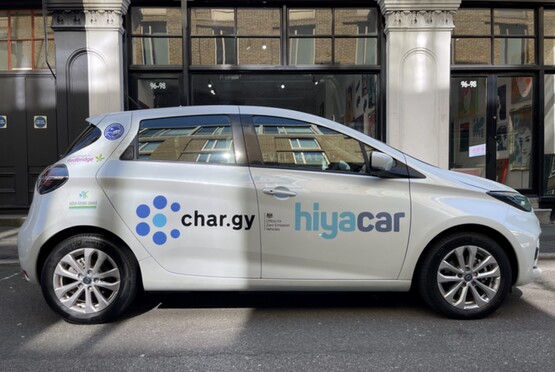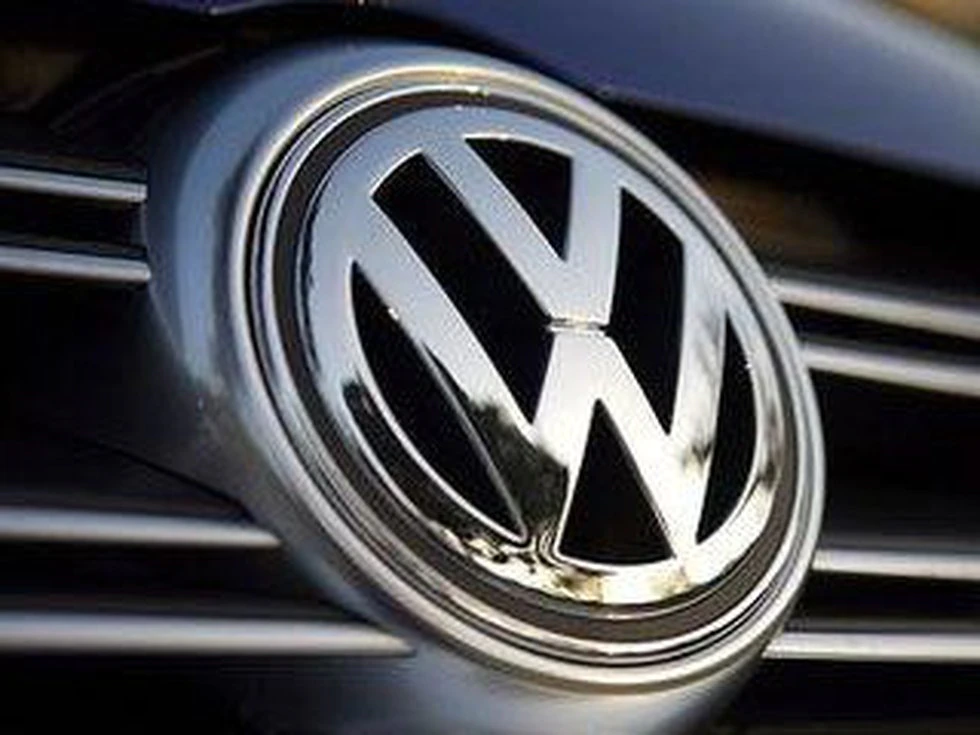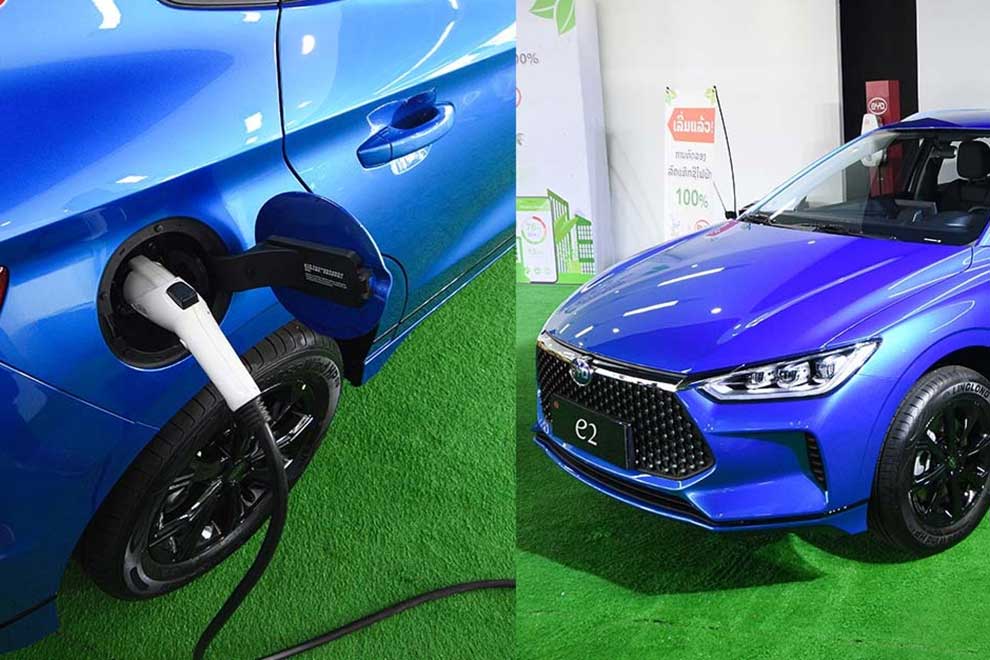Oct 11 – We talk with two Big Law attorneys about the Biden administration’s approach to boosting electric vehicle sales and some of the difficulties that could lie ahead.
Electric Vehicles
Electric Vehicle Market Outlook 2021-2031
DUBLIN, Oct. 11, 2021 /PRNewswire/ — The “Electric Vehicle Outlook: 2021 and Beyond” report has been added to ResearchAndMarkets.com’s offering.
The report covers the latest trends in EVs and demand for these vehicles. It provides an overview of new product developments, growth of the charging infrastructure and market share data for the major vehicle manufacturers.
Understand which markets are best prepared for a boom in EVs with clear insights into the opportunities for electric vehicles, data delivered in interactive charts and graphs, and 10-year forecasts to enhance your planning activities.
Market Overview
In a tough 2020 for the automotive industry, the strong demand for EVs has been a real bright spot. This will continue around the world in 2021 and beyond, despite the economically adverse conditions. Electric vehicles represented almost 5% of all new car sales in 2020. EVs are forecast to reach over 7% of new car sales worldwide in 2021, a further 66% growth, to exceed 5 million units sold. Approximately 1.3 million EVs were sold in both China and Europe in 2020, four times the EV sales in the US.
EV sales will continue to grow throughout the decade, with the publisher forecasting that EVs will represent 48% of all new cars sold in 2030.The automotive industry is currently facing crippling semiconductor shortages, so managing future supply chains and production systems to cope with the growth will be make or break for any electric vehicle strategies.
Key Topics Covered:
- Market data: All passenger cars
- Market data: Global EV market 2020 review
- Market data: EV market by brand and model 2020
- Market data: Global EV market forecasts
- Motorization and urbanization around the world
- Electric vehicle choice
- EV charging infrastructure
- Government policies
- Market preparedness for EVs around the world
Companies Mentioned
- Aiways
- Audi
- BMW
- Daimler
- FCA
- Ford
- GAC
- Honda
- Hyundai
- Nissan
- PSA
- Renault
- SAIC
- Subaru
- Tesla
- Toyota
- Volvo
- VW
- WHG
- Xpeng
For more information about this report visit https://www.researchandmarkets.com/r/642aps
Media Contact:
Research and Markets
Laura Wood, Senior Manager
[email protected]
For E.S.T Office Hours Call +1-917-300-0470
For U.S./CAN Toll Free Call +1-800-526-8630
For GMT Office Hours Call +353-1-416-8900
U.S. Fax: 646-607-1904
Fax (outside U.S.): +353-1-481-1716
SOURCE Research and Markets

Related Links
TechFW client approved to sell home electric vehicle charger
Electric vehicles (EVs) are growing in popularity and availability and a TechFW client hopes to be at the forefront of offering ways to keep these vehicles powered. TechFW client Revitalize Charging Solutions announced Oct. 11 it has received UL safety certification for its REV+ dual home electric vehicle charger and has begun manufacturing for retail […]
Char.gy and Hiyacar launch wireless charging electric vehicle trial
Char.gy has launched a 12-month wireless charging trial in Marlow, Buckinghamshire, with peer-to-peer car sharing platform Hiyacar.
The trial will use 10 Renault Zoe battery electric vehicles and is a collaborative effort between Buckinghamshire Council, Milton Keynes Council, London Borough of Redbridge, the University of Warwick, the Open University, IPT Technology, and additional support from Hiyacar.
Funding has come from the Office for Zero Emission Vehicles (OZEV) and Innovate UK.
Char.gy, which has developed the wireless technology with IPT Technology, hopes the trial will pave the way for the future of urban wireless EV charging.
It says the new charging solution will mean that in the near future, those without access to private charging via garages, driveways or other off-street parking options will be able to charge their vehicles efficiently and cable-free.
Char.gy’s wireless charging works via an electrical induction charging pad installed in the ground. In the trial this is fitted in a dedicated parking spot in Liston Road car park.
Existing EVs do not have wireless charging capabilities built in, the 10 Hiyacar Zoes have been fitted with an aftermarket induction charging kit. They can be booked through the Hiyacar app.
Nine additional trials will take place in other locations around Buckinghamshire, as well as Milton Keynes.
Drivers who rent an EV during the trial will be contacte by the Open University for their feedback on their experience to gauge the success of this charging solution from the drivers’ perspectives.
Other trials of wireless charging technology are also taking place in the UK.
In another OZEV-funded project, nine electric taxis with take part in a trial in Nottingham. They will be available on the city’s streets for hail by the general public as they capture data, including journey distances and battery level.
All the vehicles will be adorned in a new green and blue livery to promote the WiCET (Wireless Charging of Electric Taxis) branding.
EDF’s electric vehicle charging firm Pod Point plans London IPO
LONDON, Oct 11 (Reuters) – Pod Point, which provides charging points for electric vehicles in Britain, said on Monday it plans to list on the London Stock Exchange.
The company, majority owned by France’s EDF (EDF.PA), said it plans a premium listing with a free float of at least 25%.
Pod Point says it is Britain’s largest provider of home charging points for electric vehicles and the second largest of workplace charging. It booked revenue of 33.1 million pounds ($45.18 million) in the year ended Dec. 31, 2020 with an adjusted underlying loss of 12.3 million pounds.
The company said the offer would compromise the sale of new shares and some by existing shareholders including Legal & General Capital Investments. EDF will maintain a stake of more than 50% following the listing.
($1 = 0.7325 pounds)
Reporting by Rachel Armstrong; editing by Simon Jessop
Our Standards: The Thomson Reuters Trust Principles.
Applicants sought for electric vehicle charging equipment
CONCORD, N.H. (AP) – The New Hampshire Department of Environmental Services is seeking qualified applicants to install electric vehicle charging equipment that will be covered by a trust fund in a settlement reached with Volkswagen over emissions control software.
Responses are due Friday, Jan. 7, 2022.
Last month, in an agreement reached with the attorney general’s office, Volkswagen Group of America and related companies announced that they are going to pay the state $1.15 million in a settlement for the use of devices on some diesel vehicles that resulted in excess emissions of nitrogen oxides.
That’s in addition to a settlement of about $204 million to New Hampshire in the form of an environmental trust fund and civil penalties.
Copyright 2021 The Associated Press. All rights reserved. This material may not be published, broadcast, rewritten or redistributed without permission.
Lao gov’t shoots for 1% electric vehicle use by 2025
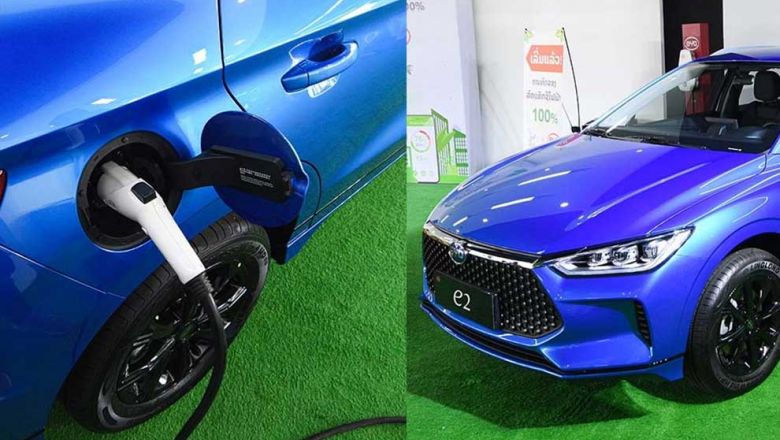
The government is aiming to increase the number of electric vehicles (EV) on Laos’ streets to one per cent by 2025 and over 30 per cent in 2030. VIENTIANE TIMES
The Lao government is aiming to increase the number of electric vehicles (EV) on the country’s streets to one per cent by 2025 and over 30 per cent in 2030.
Prime Minister Phankham Viphavanh recently approved a new policy on the use of EVs to minimise fuel imports and reduce harmful gas emissions.
Laos is promoting the use of clean energy in the transport sector as part of measures to translate the government’s policy into an action plan until 2025, a strategy for 2030, and a vision for 2050.
The policy is part of efforts to fulfil the national agenda on addressing the country’s economic and financial difficulties, mainly through austerity measures aimed at reducing the import of fuel-inefficient cars and promoting the use of electricity.
Laos has abundant potential to produce electricity from water, solar power and wind, and waste. These resources could be used to generate 26,000MW. So far, about 20 per cent of this potential has been developed.
In order to increase the number of EV dealers, the government will not set restrictions on the import of EVs, but vehicles imported and sold in Laos must meet international standards for quality, safety, after-sales service, and maintenance.
This must include a system for the management of waste resulting from the operation of EV businesses.
The government will encourage businesses to set up factories for the production of EV parts and other components, as well as invest in the development of charging stations throughout the country.
There will also be tax exemptions or reductions on the equipment imported for EV production and charging stations.
The government has appointed Electricite du Laos (EdL) as the service provider for the installation of charging stations, with the state-owned power company being instructed not to charge meter fees to residences or businesses that make use of these facilities.
EdL will provide priority EV parking spots as well as charging stations in public areas.
The testing of charging systems for EVs is a vital part of long-term preparations for switching to the use of clean energy.
Under the policy, the annual road tax for EVs will be 30 per cent less than for petrol vehicles of equal engine power.
The government aims to be a leader and model in the use of EVs in state administration, then encouraging state enterprises and public transport operators to use EVs.
Laos imports a large quantity of fuel annually, which has contributed to a huge trade deficit in recent years, according to EdL.
In 2016, Laos imported almost 2,000 million litres of fuel, worth more than $1 billion, with the cost shooting up to nearly $2 billion last year.
VIENTIANE TIMES/ASIA NEWS NETWORK
3 Chinese Electric Vehicle Stocks That Beat Sales in Q3 By StockNews

© Reuters. 3 Chinese Electric Vehicle Stocks That Beat Sales in Q3
While the global chip shortage continues to impact Chinese EV companies, the industry has immense long-term growth potential. So, popular Chinese EV stocks NIO Inc. (NIO), XPeng Inc. (XPEV), and Li Auto Inc. (LI), which beat their third-quarter vehicle sales estimates, could be worth watching.Despite the semiconductor chip shortage severely affecting the electric vehicle (EV) industry, EV sales of Chinese companies have gotten a boost due to government subsidies and other preferential policies. In addition, the Chinese government would like 20% of new cars sold to be new energy vehicles by 2025.
Moreover, China’s Ministry of Industry and Information Technology indicated there could be sector consolidation. Tu Le, the founder of Beijing-based advisory firm Sino Auto Insights, said that he expects China’s top electric-car makers to benefit from efforts to consolidate the industry “since it’ll eliminate potential competitors and perhaps allow them to acquire a team or technology to enhance their products.”
As a result, famous Chinese EV makers NIO Inc. (NIO), XPeng Inc. (XPEV), and Li Auto Inc. (LI), which delivered higher-than-expected EV sales in the third quarter, could be solid additions to your watch list.
Fusion Media or anyone involved with Fusion Media will not accept any liability for loss or damage as a result of reliance on the information including data, quotes, charts and buy/sell signals contained within this website. Please be fully informed regarding the risks and costs associated with trading the financial markets, it is one of the riskiest investment forms possible.
Applicants sought for electric vehicle charging equipment
CONCORD, N.H. (AP) — The New Hampshire Department of Environmental Services is seeking qualified applicants to install electric vehicle charging equipment that will be covered by a trust fund in a settlement reached with Volkswagen over emissions control software.
Responses are due Friday, Jan. 7, 2022.
Last month, in an agreement reached with the attorney general’s office, Volkswagen Group of America and related companies announced that they are going to pay the state $1.15 million in a settlement for the use of devices on some diesel vehicles that resulted in excess emissions of nitrogen oxides.
Volkswagen had installed software in the vehicles that turned off emissions controls, the office said. At times, this resulted in nitrogen oxide emissions estimated to be more than 30 times the allowed limit.
The settlement resolves the last case between Volkswagen and the state related to the devices, which were discovered in 2015. That resulted in a settlement of about $204 million to New Hampshire in the form of an environmental trust fund, civil penalties for violations of consumer protection laws, and relief to vehicle owners and dealers.
Amid the petrol crisis, is it time to switch to an electric car? | Motoring
As some petrol stations ran out of fuel and queues of cars lined up outside those that did have stocks, causing lengthy waits for motorists waiting to fill up, many drivers’ thoughts turned to the option of buying an electric vehicle.
The classified ad website Autotrader says there was a 60% rise in searches for electric cars in the week after 24 September, when shortages at the pumps started. Industry figures show that the number of electric cars sold in the UK last month neared the figures for the whole of 2019.
Seán Kemple of Close Brothers Motor Finance, which offers car loans through dealerships, said the recent fuel shortages may act as a catalyst for some drivers to switch over sooner than planned. “With demand for electric vehicles already growing rapidly this year, the fuel shortages will have certainly further raised awareness for consumers of the benefits of owning an EV,” he said.
In the past, many drivers have been turned off by the upfront cost, which is typically higher than petrol equivalents. But with the price of production falling and battery prices coming down, switching is becoming more accessible. So is now the time to go electric?
The upfront cost
Although the cost of producing an electric car is decreasing, the price of an EV is still more than its petrol equivalent, a situation which is expected to continue for the next five years.
The insurer LV= compared similar models of electric and petrol vehicles, with the EVs coming out more expensive. For instance, it found that a Nissan Leaf cost just under £27,995, more than £5,000 more than a petrol Ford Focus; while the electric Tesla Model 3 cost almost £40,990, compared with £39,625 for a petrol BMW 320i.
There are options for those who do not have the money to buy outright and do not want to take out a loan. Many buyers will choose to lease their cars. This means the driver pays a monthly fee for a number of years, after which they hand back the car or take a newer model and start another contract.
DriveElectric, a leasing company in Buckinghamshire, says most customers lease for between two and four years and get a newer model at the end of the term. A Nissan Leaf can cost from £200 a month on a four-year contract with the firm.
Monique Furniss from Rotherham-based Norton Finance said this option appealed to people who wanted to have the most up-to-date vehicle. “Since electric vehicle technology is developing at such a rapid rate, people who are interested in enjoying the environmental and financial benefits of an electric car are more likely to want the newest and therefore most advanced cars,” she said.
Alternatively, drivers can also now get EVs on a renewable monthly basis with everything included, giving them the opportunity of trying them out without committing to buying or a lengthy lease. Onto has contracts that automatically renew each month unless you cancel and has a Renault Zoe ZE50 on its books for £389 a month for a maximum of 1,000 miles with insurance, charging and maintenance included. Onto says there is no upfront deposit on the vehicles, but additional mileage above the monthly limit must be paid for, as well as delivery and collection fees. Elmo meanwhile has the same car from £379 a month with a limit of 800 miles. It costs £397.78 for 1,000 miles and £416.55 for 1,200 miles.
Melanie Shufflebotham, the co-founder of the Zap-Map website and app, which helps drivers find charging points, said the subscription model was a good way to test an EV for the first time.
If you would rather buy outright, the government offers a grant for the initial purchase of qualifying vehicles, although it is not as generous as it was. The plug-in vehicle grant gives you up to £2,500 off the price of a brand new qualifying car as long as it costs less than £35,000.
Running Costs
Although the headline price of an EV is higher than its petrol equivalent, the day-to-day cost of driving the car should be lower. The LV= survey found that the switch away from filling up offers the biggest saving, with EV drivers with an annual mileage of 12,000 saving more than £900 a year.
Charging the car typically costs just over £500 a year,if it is mainly done at home. The average cost for petrol or diesel is £1,435 a year.
To work out how much it will cost you to charge an EV, multiply the unit cost of electricity by the size of the battery. In an example by DriveElectric, a Peugeot e-208 with a 50kWh battery at 5p per kWh will cost £2.50. To keep your spending down, you can switch to one of the specialist tariffs aimed at electric car drivers from suppliers such as Octopus Energy and EDF. Instead of the 12p-15p/kWh that many households pay for each unit of electricity, users on specialist tariffs can cut the cost to 4.5p per kWh at night. (EDF’s GoElectric 35 offers this rate.)
EVs also get a 100% discount on the congestion charge in London, currently £15 a day. To get the cleaner vehicle discount, you must register, pay a £10 annual fee and submit documents to prove that you own the vehicle.
Insurance and tax
Insurance for EVs has been more expensive than for their petrol equivalents because, in part, the vehicles are more expensive. In the first six months of this year, the average cost of insuring an EV was £490, compared with £509 for a diesel and £456 for a petrol vehicle, according to the price comparison website GoCompare.
Alex Borgnis of LV= said batteries – which can be worth up to 50% of the value of the vehicle – may need to be replaced if they have been involved in an accident, even if they were not damaged. “But as more cars come on to the road, a lot of these challenges lessen, so we would expect owners to have more options in terms of insurance cover and price,” she said.
When taking out insurance, you should investigate whether the policy covers charging cables in case they are damaged or stolen or if someone trips over them and injures themselves.
One straightforward saving from buying an EV is road tax. Zero emission vehicles are exempt.


